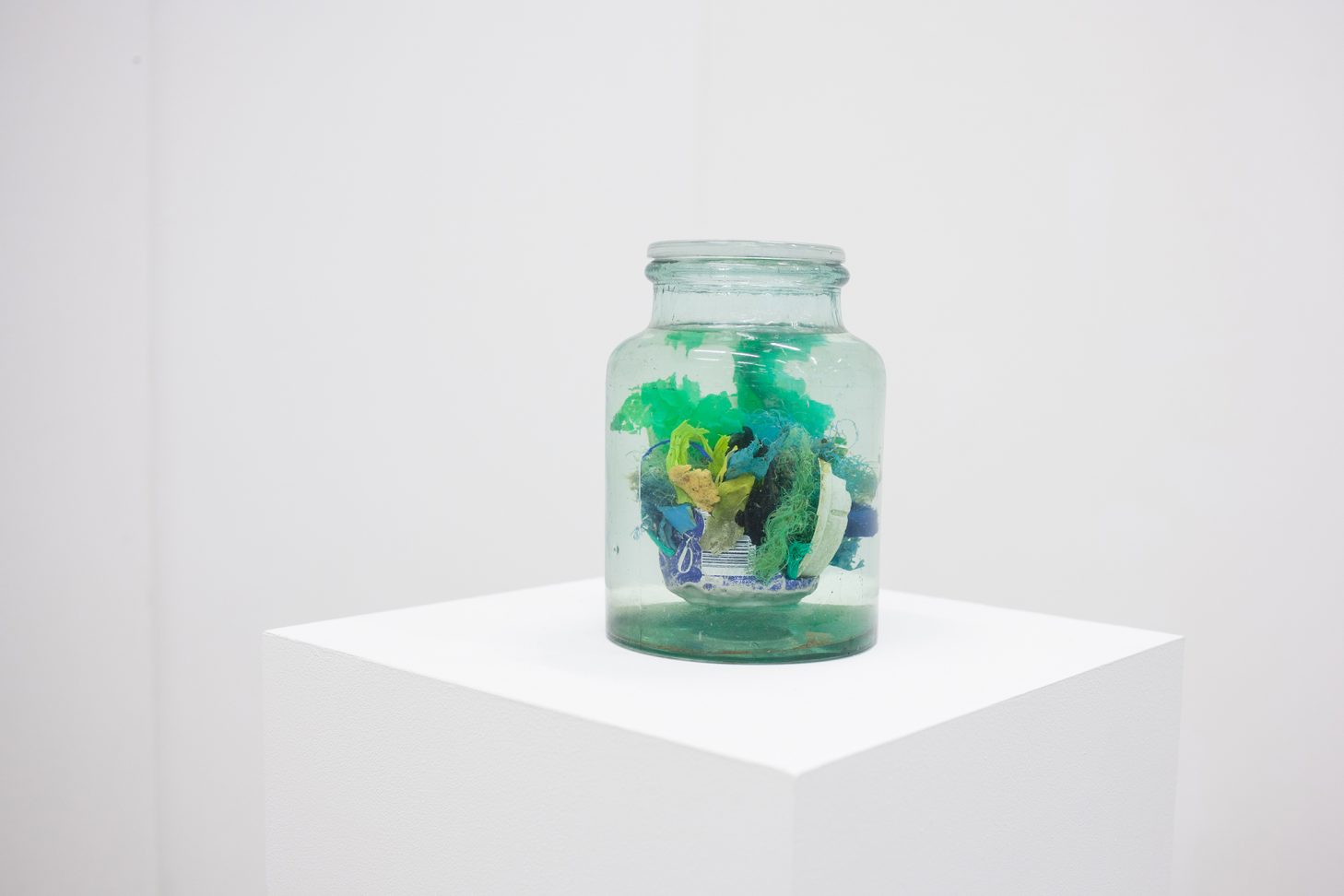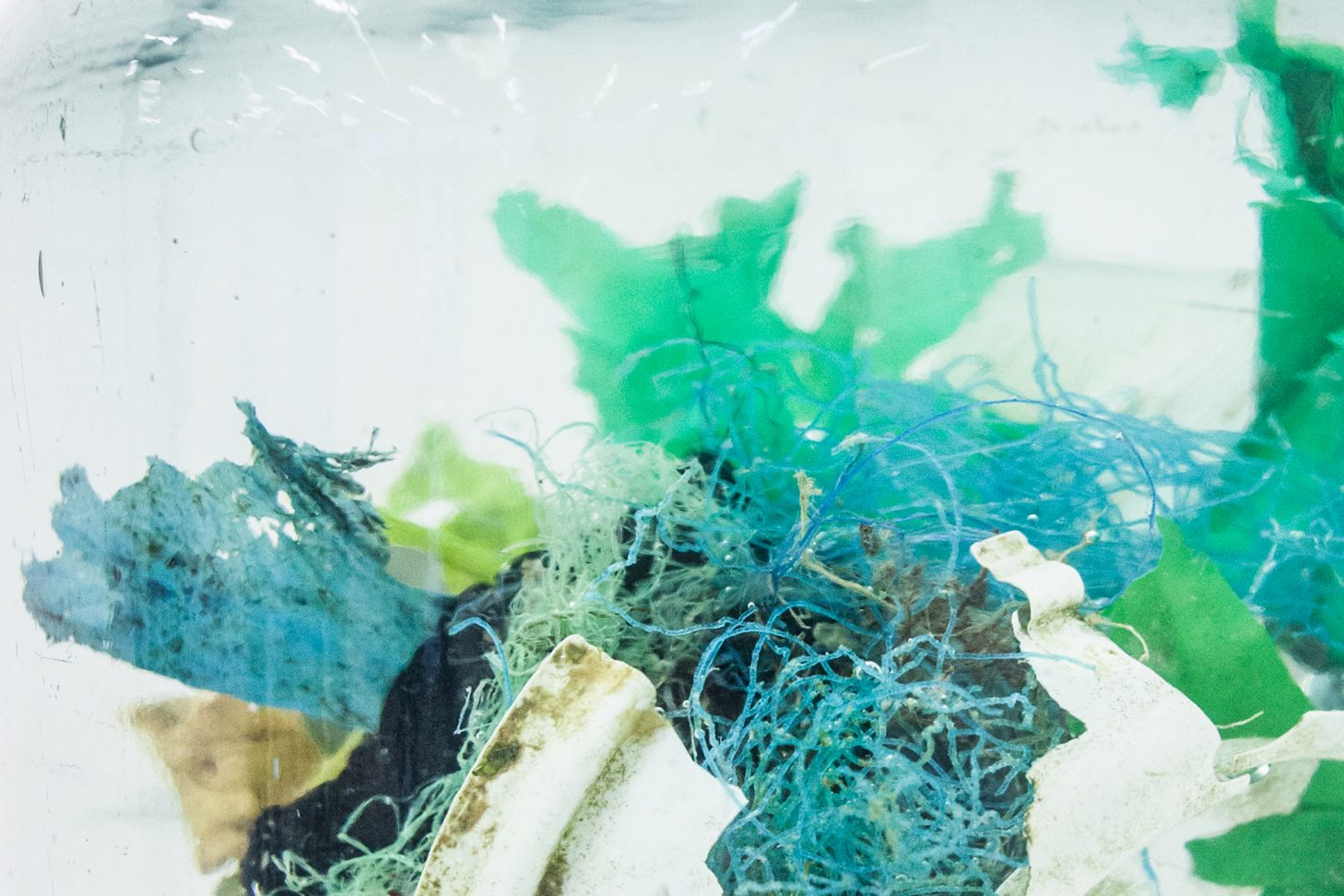

A Find from Pegwell Bay
2017
specimen jar, plastic waste found on the beach, clear silicone
Artist Statement
This Autumn I went for a walk in the natural reserve „Pegwell Bay“ on the coastline of South East England. Between singing birds I found different kinds of plastic waste: old aluminum beer cans, fishing nets, parts of plastic cups, plastic shaver, balloons and many little indefinable pieces of plastic. They were easy to collect as the colors of the plastic sticks out of the natural environment and in about two hours I found enough waste to fill my whole rucksack.
Plastic waste is a growing, global problem as in 2050 there will be more plastic in our seas than fish. Plastic is a long lasting material and it will take about 500 years for a plastic bottle to decompose. In this process the plastic is crushed into many small pieces by the seas power and through currents it’s distributed all over the world. It enters the food chain by small animals which recognize small plastic pieces as food and eat them. Because animals can’t digest plastic, it’s given further to the next bigger animal, which is eating the small. There is e.g. a huge number of seagulls which are dying because of plastic filled stomachs.
Referencing to a scientific exhibition practice, I’m using a specimen jar to present my found pieces of plastic. I rearranged them in the manner of a underwater plant to refer to the mix-up of plastic as a source of food and to highlight the entering of plastic in the circulation of nature. The specimen jar’s notion of preservation takes up the plastic’s long lasting characteristic in the sea. The jar works as object of scientific evidence through which the condition of rubbish filled beaches is given a representation in the collective mind. I present the jar on a white plinth to allude to the traditional natural museum’s context.
My work questions our image of plastic as a clean material and explores the aesthetics of our coastlines between plastic and plants.